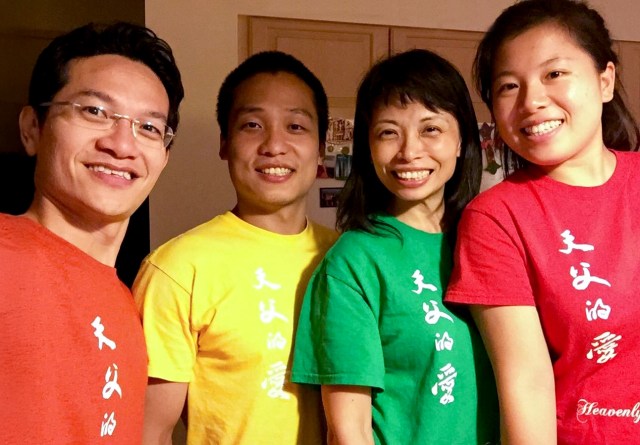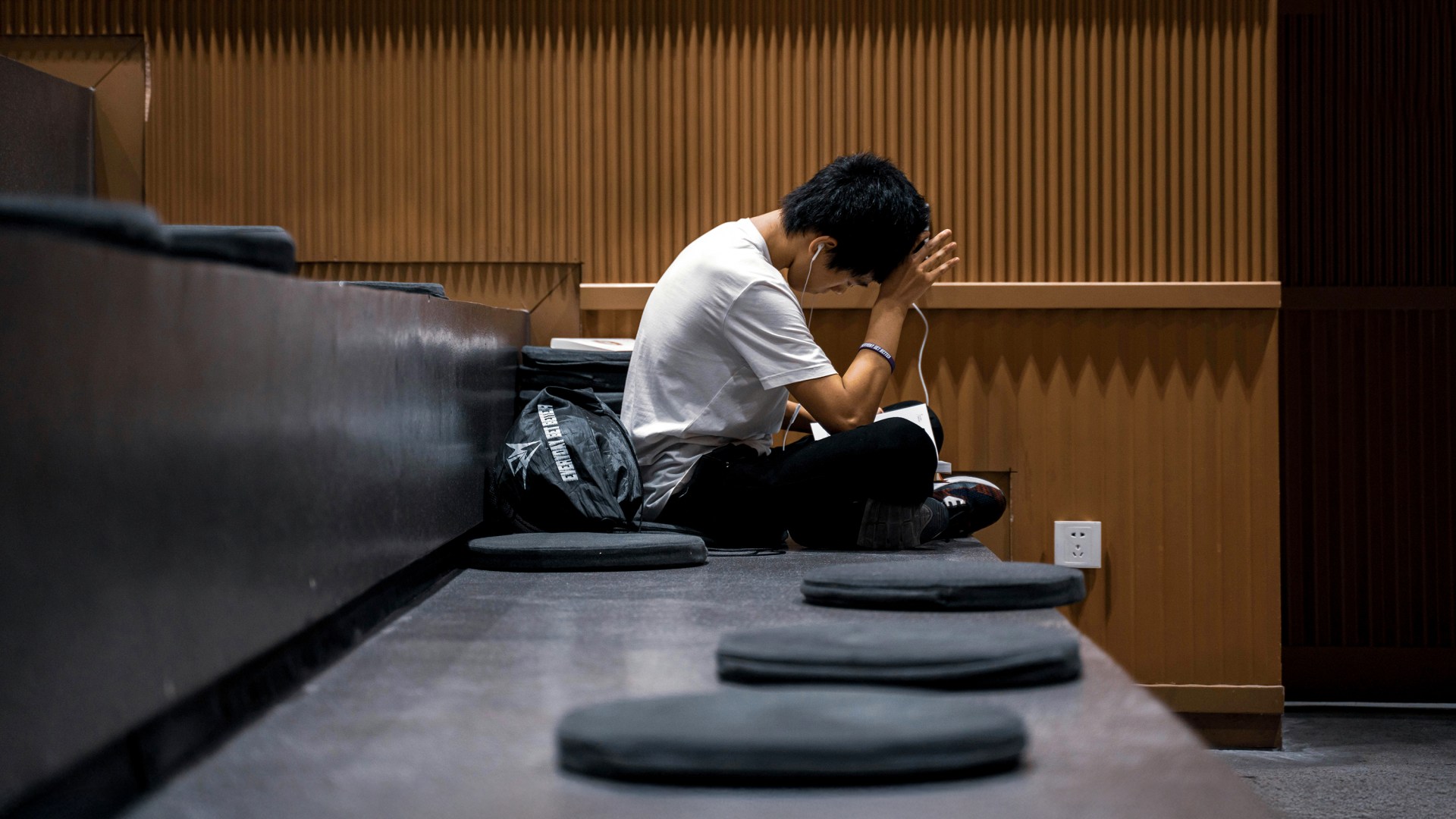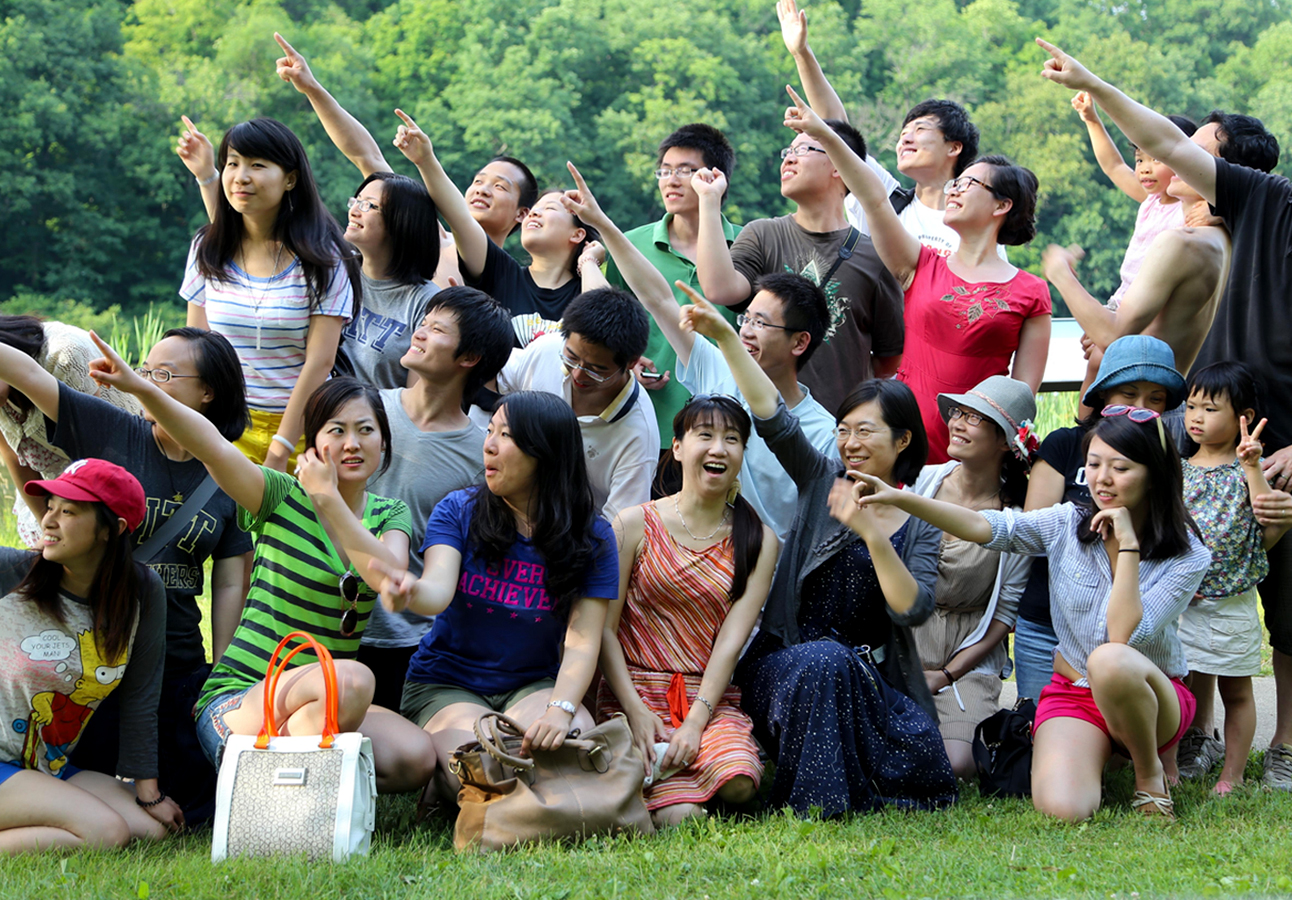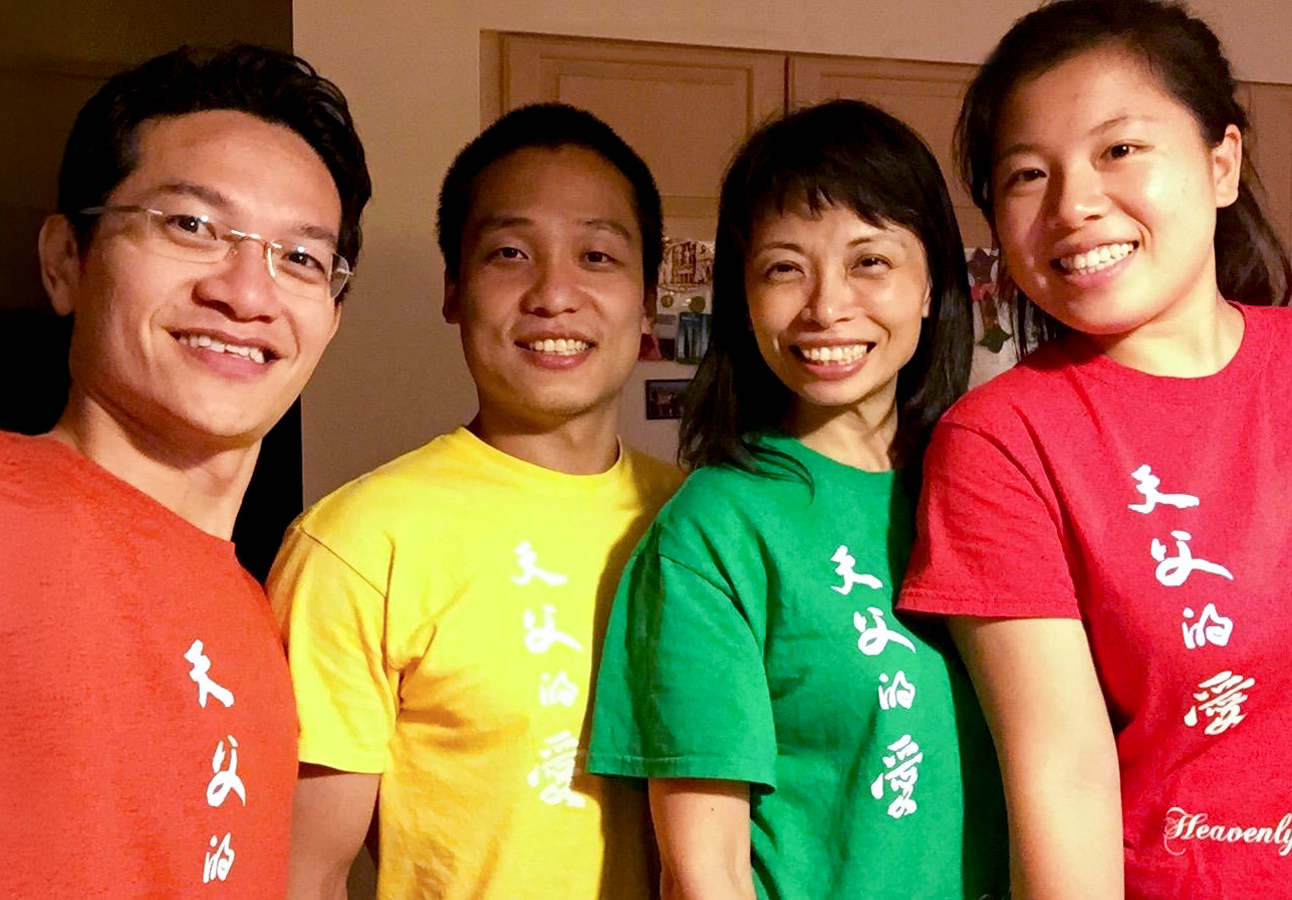Eugene Ooi was driving toward Pittsburgh’s university district at dusk in June 2009 when a dazzling sunset brought about an epiphany.
“I started imagining how many [Chinese] students and scholars here must be longing for … a warm and welcoming home away from home.”
A native of Malaysia, Ooi was familiar with the feeling, as he moved to the States at 17 for college. So through his church, Pittsburgh Chinese Church Oakland (PCCO), he started a new small group called Xinjia, or “Home Away from Home,” focused on reaching out to Chinese students at the nearby colleges of Carnegie Mellon University, the University of Pittsburgh, and Duquesne University.
That first year, Home Away from Home saw a remarkable season of growth, “one we haven’t quite experienced again in the same way since,” Ooi noted. Around seven or eight out of every ten newcomers came to faith and many now serve in churches around the world. The Chinese students were hungry for community and interested in learning about Christianity.
“You could say this was God’s reward or confirmation for our decision to fully commit to campus ministry,” he said.
Today, Ooi is still ministering to Chinese international students as the church’s campus minister, yet global trends and geopolitics have changed the church’s ministry. An increase in Chinese students’ economic level has made the church’s practical outreach efforts, such as offering rides or free food, less effective. More students are suspicious or fearful of interacting with Christians in the US as the Chinese government tightens the reins on religion. Students are also more likely to return to work and live in China rather than staying in the US due to challenges securing work visas.
Recently, the Trump administration announced that it planned to “aggressively” revoke visas for Chinese students it believes have “connections to the Chinese Communist Party or studying in critical fields.” In May, the US suspended the process for foreigners to apply for student visas before restarting it a month later, adding the requirement that all applicants set their social media accounts to “public” for government review.
In the midst of the uncertainties, Chinese student ministries like PCCO’s are seeking to adapt.
“If we do make any changes to our approach, it’s not because of politics—it’s because we want to grow, to be renewed in our minds, and to continually seek better ways to connect with students,” Ooi said.
PCCO’s campus fellowship now has six groups spread across the three universities. Many of the Chinese students attending the groups have decided to stay in Pittsburgh this summer instead of returning to China, as they fear they won’t be able to reenter the country, said Situ Junqing, a minister at the fellowship. The government recently deported several Carnegie Mellon students and recent grads after revoking their visas.
“There’s a general feeling of instability, this fear of the unknown,” Situ said.
He noted that many students who come to study in the US face family pressure, as their parents invested a significant amount of money into their education. Students also don’t want to take part in China’s intense work culture, so the thought of returning home is emotionally taxing. “The pressure is intense,” he noted.
Situ sees this as an opportunity to help ground the students’ identities in biblical truth, rather than their careers or their ability to stay in the US. “I do believe these moments offer opportunities to walk with people, help them apply truth to their lives, and pray together,” he said.
Tsun-En Lu of the diaspora Chinese ministry Ambassadors for Christ (AFC) said that although the Trump administration has threatened to revoke Chinese student visas, that doesn’t necessarily mean there will be a large-scale policy shift. US universities, as well as industries like medicine and engineering, need talented Chinese students. “Once some political or interest-based conflicts are resolved, things will return to fundamentals, [as] cooperation is more of a need than competition for both societies,” he said.
Lu, director of AFC’s Discipleship Resource Center, noted that the number of Chinese international students has been dropping in the past decade, a decline the COVID-19 pandemic exacerbated. Yet ambitious Chinese families are still set on sending their children to top-tier schools in the States, and those who do come are often more intentional in their studies and plan to stay long-term, Lu said.
“They carefully choose schools, study diligently, plan their finances, and have a more favorable view of Christianity” and they are curious about American society, he said. “So from a campus ministry perspective, that’s actually good news. … It’s actually easier now to build real relationships.”
Back in Pittsburgh, PCCO conducted an online survey for members of the student ministry to gauge their needs. He found that young professionals, including those with H-1B work visas or green cards, were the most anxious, as they are more inclined to stay in the US, while many undergraduates or graduate students plan to return to China.
Ooi organized talks over the summer to explain to students their constitutional rights if immigration officers were to knock on their doors or ask to speak with them. But the turnout was lower than expected, which he believes signals that the students weren’t very concerned.
 Courtesy of Eugene Ooi
Courtesy of Eugene Ooi“I think the pressure might be greater for those who haven’t yet come to the US and don’t know what to expect, whereas those already here have somewhat adjusted to how things are and feel it’s okay,” Ooi said.
While the leaders of the fellowship don’t know how the policy changes will impact the incoming class this fall, they know there will continue to be opportunities to tell new students from China about Jesus, as their mother church has done for nearly a century.
PCCO is a church plant of Pittsburgh Chinese Church, whose origins date back to 1937, when missionary Lizzie Shaw gathered 13 children in Pittsburgh’s Chinatown for Bible study. Pittsburgh’s steel mills attracted many early Chinese immigrants, then later Chinese students came to attend the city’s universities. Pittsburgh Chinese Church was established in 1967.
Steve Sheng, one of the pastors of PCCO, noted that campus ministry has always been an integral part of their church because of its location. The church leadership want to strengthen the connection between campus fellowships and the local church.
For many Chinese immigrants, college is a pivotal time in their faith journeys. Ooi grew up attending church in Sabah in East Malaysia, and he felt called to go into ministry during a youth conference as a teen. While attending the University of Georgia, he got involved in student ministry and met his wife, Meiru, and together their hearts became burdened for mainland Chinese people.
They thought that meant they would go to missions in China one day, but the couple instead moved to Pittsburgh in 2005 for Ooi’s ophthalmology residency. They began attending PCCO and doing ministry with Chinese international students. Soon they “realized how vast the Chinese harvest field was even in this city,” Ooi said.
Situ and his wife, Yin Shengjun, who are from Shanghai, came to faith through the PCCO fellowship while they were attending grad school. Originally from a Buddhist background, Situ struggled to accept the exclusivity of Christianity after Yin, his then-girlfriend, connected with Meiru and became a believer. Then in 2012, he attended a PCCO retreat where during a prayer session, he felt the Holy Spirit move in him. Crying uncontrollably, he began to understand the gospel.
The Oois mentored the couple, walking with them through a difficult breakup, then witnessing Situ’s genuine growth in faith. “They basically watched us grow, break up, argue, slam doors—I don’t know how many times their doors were slammed,” he said, laughing.
 Courtesy of Eugene Ooi
Courtesy of Eugene OoiSeeing the impact college ministry had on their own lives, the couple started mentoring college students while working and raising their four children in Pittsburgh. They believe Chinese student ministry is a vital part of global missions; they are making disciples who go back to China or other parts of the world. “The discipleship is not necessarily for the Pittsburgh church but for God’s global church,” Situ said.
In July, the campus ministry team gathered to discuss new ways to reach students. Situ noted that the changes—both geopolitical and generational—forced them to think and pray about their strategy.
“Of course, God is in control,” Situ said. “We just need to be faithful and think through things both spiritually and rationally. I look at myself and realize that if God had just let us do whatever we wanted, we wouldn’t be here serving today.”
Ooi noted that the new generation of Chinese college students needs more than just biblical teaching—it needs “a new kind of connection.”
Traditionally, Chinese student ministries have reached students by putting on events like Chinese New Year dinners or hosting churchwide evangelistic rallies. But in the past decade, the fellowship leaders have found that students are less likely to attend large events but respond when Christians make an effort to befriend them.
“We must build deep relationships, enter into their lives, understand their academic stress, emotional struggles, and relational conflicts,” he said.
The fellowship follows a “life cycle” based on the school year: welcoming new students in August, focusing on outreach evangelism from September to December, and shifting to discipleship from January to May. The leaders host gatherings in the homes of families who live nearby and weekly meetings in classrooms to increase their physical presence on campus. This year, they plan to participate in more school-sponsored events and organize their own events, such as career talks or mental health workshops, to connect with more students.
As Christianity has grown in China in past few decades years, more students come to the college with background knowledge of Christianity or as Christians themselves. Still, most Chinese students hear the gospel for the first time while studying in the US.
Ooi leverages this change by pairing Chinese Christian students with mentors and encouraging them to take “an active role in leading [the fellowship’s] on-campus activities so they can genuinely feel a sense of belonging.”
Chinese students made up 18 percent of Carnegie Mellon’s student body in 2023, according to the school’s official enrollment data. Ooi noted that even if the Trump administration’s policies mean a couple hundred fewer Chinese students come this year, there are still thousands of Chinese students for Ooi and his team to reach.
Currently many Chinese students are struggling with belonging, Ooi said. “The US doesn’t feel like home, they face unfriendly attitudes, and it’s hard to find work, yet going back to China doesn’t seem like a better opportunity,” he noted.
This is an opening for students to reconsider where their true home lies, Ooi said.
“This may be an opportunity for students to realize there is a third way: It’s not America or China but Jesus Christ,” he said. “So we continue to work, no matter the environment.”
















